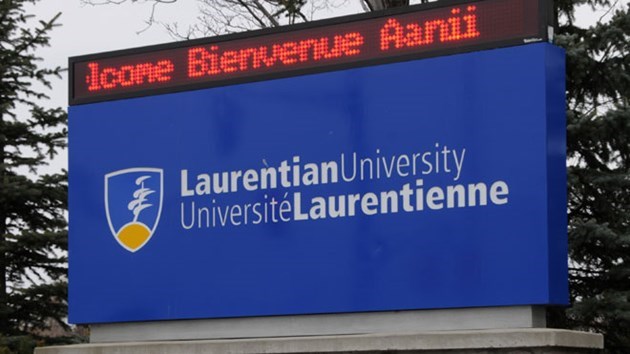Greater Sudbury's post-secondary institutions are grappling with the effects of the recent provincial budget, which saw spending cuts and a radical change to how Ontario colleges and universities will be funded.
Earlier in 2019, the government scrapped free tuition for low-income students and replaced it with a mix of grants and loans, as well as cut tuition for all students by 10 per cent.
Colleges and universities are expected to absorb the tuition fee revenue loss, although a contingency fund for northern schools was also announced.
In the budget, the province also announced spending on post-secondary education and training will decrease from $12.1 billion in 2018-19 to $11.7 billion at the end of the Tories' four-year term, for an average drop of one per cent annually.
Laurentian eliminated $10.1 million from its spending to present a balanced budget for 2019-2020 in June — the tuition fee cut alone created a $5.5 million hole in the budget.
Further changes may have to be made to Laurentian's budget in response to recent announcements by the province.
While he's still waiting for more details to gauge the impact, funding cuts in the Ontario budget are “clearly not good news,” said Laurentian's interim president, Pierre Zundel.
With inflation, the one per cent reduction in funding per year is actually a loss of three or four per cent purchasing power, he said.
But the government has a “very serious fiscal challenge,” and the post-secondary sector has “got to be a part of the solution,” Zundel said.
Cambrian College president Bill Best, who's also waiting to learn the full impact of the Ontario budget, said the school was “very conservative in its budgetary process,” allowing for possible funding cuts.
“Any time that you see a decrease in funding, it's never something that you're excited about,” he said.
Both leaders say their schools are well equipped to handle a change announced in the budget that will see post-secondary funding will be increasingly tied to performance outcomes.
The Ford Progressive Conservatives say they will negotiate new agreements with 45 post-secondary institutions by the end of next March to make the province a "national leader" in outcomes-based funding.
The province says only a small proportion of funding has been linked to institutional performance in recent years — 1.4 per cent for universities and 1.2 per cent for colleges — but that will go up to 60 per cent in the next five years.
It says the first year of the new agreements will tie 25 per cent of funding to outcomes, and that proportion will rise annually until 2024-25.
Zundel said he expects to find out more about what metrics the province intends to tie to funding soon.
However, he said they generally fall into two categories — how well students do after they graduate (employment and income statistics, ect.), and the impact schools have on the community (research income and attracting people to the city, ect.).
“At some level, these are things that, if you look at our strategic plan, are already part of our objectives,” Zundel said.
Best said he's confident Cambrian will do fine under the new system, although he too is waiting for more details.
“Being a publicly-assisted college, we have to embrace the idea that we want to be accountable with how we're investing our dollars,” he said. “We're very confident that we're very prudent in how we do that.”
Some parts of the Ontario budget also drew praise from Best, including changes to encourage people to enter the skilled trades.
That includes a one-window digital portal for people to apply for skilled trades training, getting rid of red tape as well as launching a new micro-credentials pilot this spring to provide people with the skills employers are seeking.
“A lot of the initiatives really speak well to investing in colleges, investing in our students, typically around skilled trades and hopefully making the apprenticeship stream much easier to navigate,” Best said.
Sudbury.com also reached out to Collège Boréal for comment on the recent provincial budget, but the college's president, Daniel Giroux, was not made available for an interview.
“Daniel Giroux is not available for comments at this point as we don’t know the details of the changes outlined in the provincial budget,” said spokesperson Ronan Le Guern in an email.
“There had been ongoing consultations with the government about the strategic mandate agreements and new outcome measures, and we are looking forward to continue working with the government on setting these measures.”
-With files from Canadian Press
